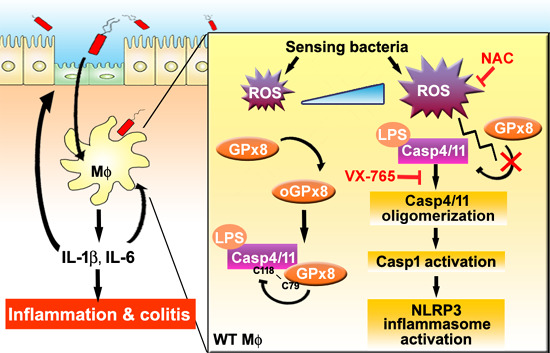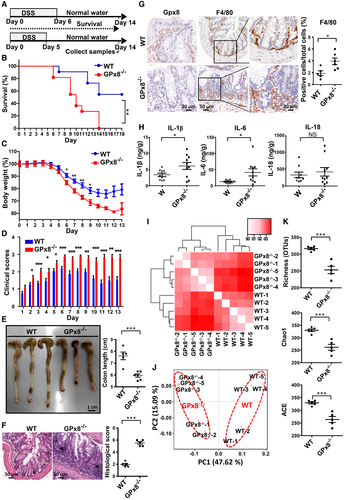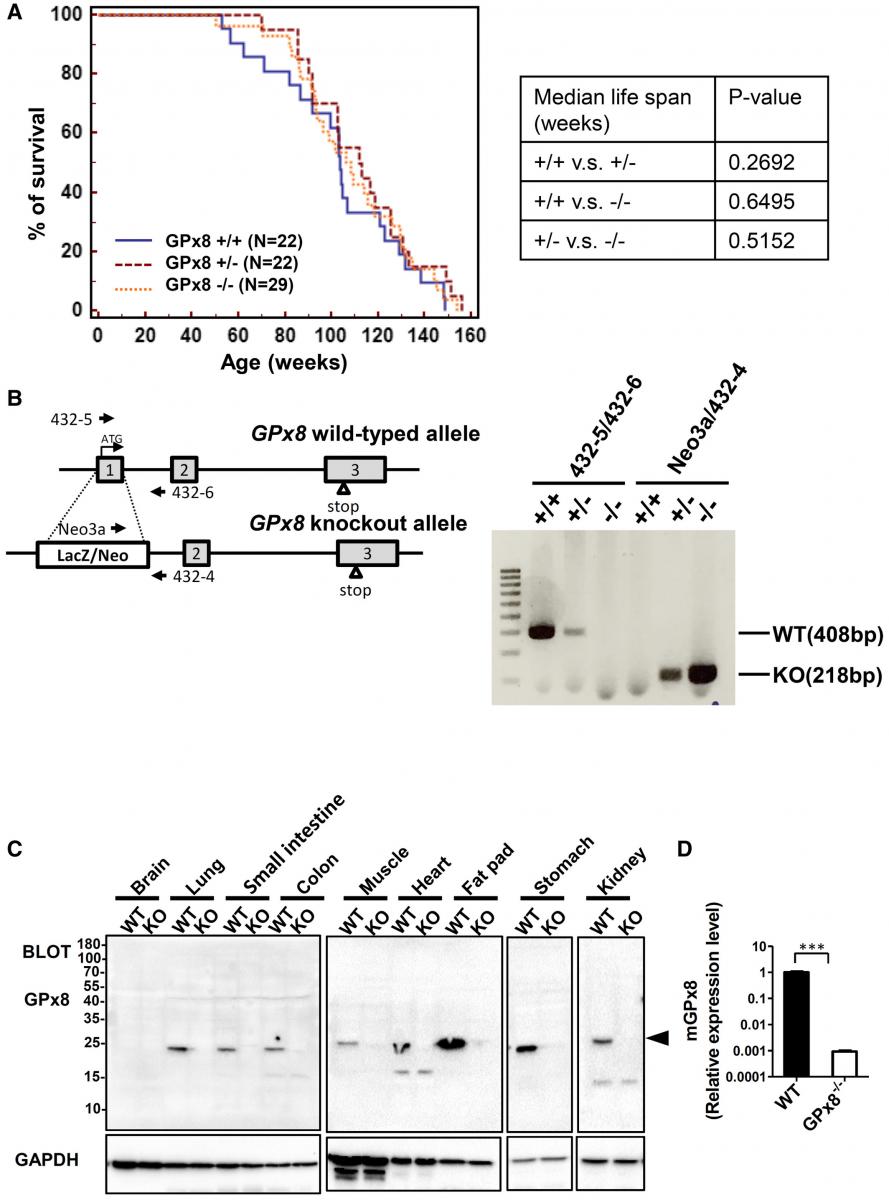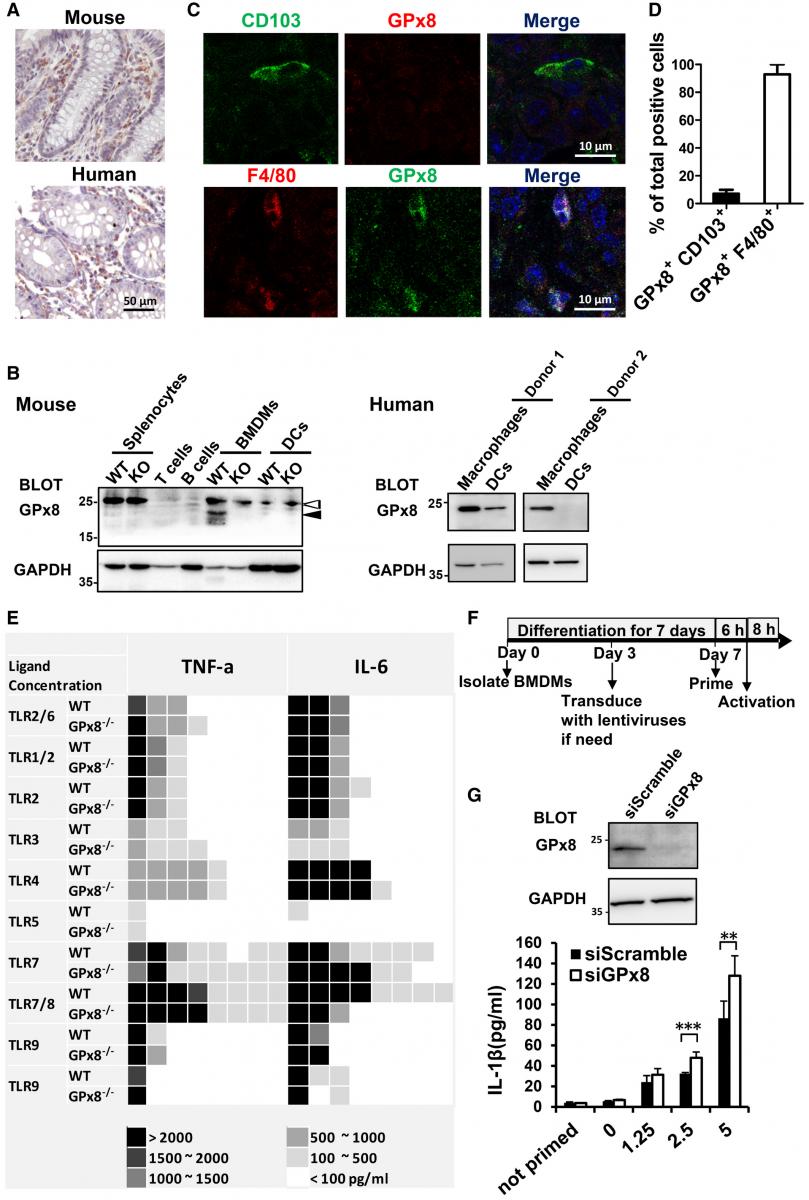| 作者/單位: | 徐婕琳/生物醫學研究所 |
| 期刊名稱: | EMBO MOLECULAR MEDICINE |
| IF值: | 10.624 |
| 領域排名: | MEDICINE, RESEARCH & EXPERIMENTAL (6/136) 4.4% |
| 文章摘要: |
Human caspase‐4 and its mouse homolog caspase‐11 are receptors for cytoplasmic lipopolysaccharide. Activation of the caspase‐4/11‐dependent NLRP 3 inflammasome is required for innate defense and endotoxic shock, but how caspase‐4/11 is modulated remains unclear. Here, we show that mice lacking the oxidative stress sensor glutathione peroxidase 8 (GP x8) are more susceptible to colitis and endotoxic shock, and exhibit reduced richness and diversity of the gut microbiome. C57BL /6 mice that underwent adoptive cell transfer of GP x8‐deficient macrophages displayed a similar phenotype of enhanced colitis, indicating a critical role of GP x8 in macrophages. GP x8 binds covalently to caspase‐4/11 via disulfide bonding between cysteine 79 of GP x8 and cysteine 118 of caspase‐4 and thus restrains caspase‐4/11 activation, while GP x8 deficiency leads to caspase‐4/11‐induced inflammation during colitis and septic shock. Inhibition of caspase‐4/11 activation with small molecules reduces the severity of colitis in GP x8‐deficient mice. Notably, colonic tissues from patients with ulcerative colitis display low levels of Gpx8 and high caspase‐4 expression. In conclusion, these results suggest that GP x8 protects against colitis by negatively regulating caspase‐4/11 activity.
|
發表者簡介
 |
| 單位:醫學院生物醫學研究所 助理教授 |
研究專長:
|
|
|
|
|
|
|
|
|



